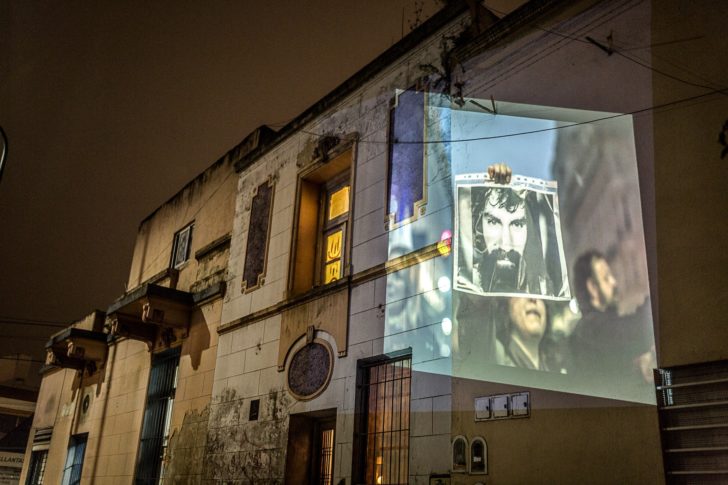On Tuesday, September 5 – 35 days after the disappearance of Santiago Maldonado – his family held a press conference in Esquel, Chubut province, accompanied by their lawyer, Verónica Heredia; the public defender of Esquel, Fernando Machado; APDH; and CELS.
Sergio Maldonado, Santiago’s brother, indicated that “the search was misoriented from the start” and that in “35 days we still haven’t seen results.” Both Sergio and Verónica Heredia thanked the members of the Mapuche community who provided their testimony. “Today a witness testified before the judge,” Heredia said, “that on August 1 at around 10 o’clock at night she went to the Gendarmerie in Esquel to ask if someone had been detained. It is a lie that 36 hours went by before the case began to be built.” She added that Santiago was “brutally beaten by three gendarmes, placed in an Unimog (truck) and then taken in a pick-up truck. All of this was said from the start and is acquiring more and more strength in the judicial case.”
Gastón Chillier, CELS’ executive director, stressed that earlier this week “it was made clear that the hypothesis of the caretaker is nonexistent,” referring to a theory promoted by the government that Santiago Maldonado could have been injured by a rural caretaker during a violent episode on July 21 – which DNA tests ruled out. Chillier added that “today it was made clear that it’s not true that the members of the community don’t want to testify and are hindering the investigation.” What remains standing is the hypothesis that existed from day one: “there was a (security force) operation, Santiago Maldonado was there, there were people who saw him, there were people who denounced his disappearance, the operation was led by the Gendarmerie and he did not appear after that. Since then, 35 days later, he continues to be disappeared.”
“We have to keep paying attention to the operation by the Gendarmerie … that was the context in which Santiago’s disappearance was denounced,” said Paula Litvachky, director of CELS’ Justice and Security area. “There is growing evidence that the operation was illegal, violent and that many abuses were committed,” she added, “and this is the point that we have tried to emphasize and call the Security Ministry’s attention to, when we asserted the need to remove those who participated in the violent operation from their posts. The (security) minister and national government’s defense of the Gendarmerie as a security force, as a corporation, does not leave room for discussing that this was a violent operation.”
Participants in the press conference questioned the role the government has played since Santiago’s disappearance. Verónica Heredia referred to “mistreatment by all the judicial and political authorities,” while Chillier denounced that “the national state reported a series of quite serious inaccuracies regarding the Gendarmerie’s role and the operation’s legality to the UN Committee on Enforced Disappearances.”
“We believe that after having diverted the investigation for 35 days, this must be a turning point so that the main hypothesis that points to the Gendarmerie is truly investigated,” Chillier said yesterday.
A video of the press conference (in Spanish) follows:

